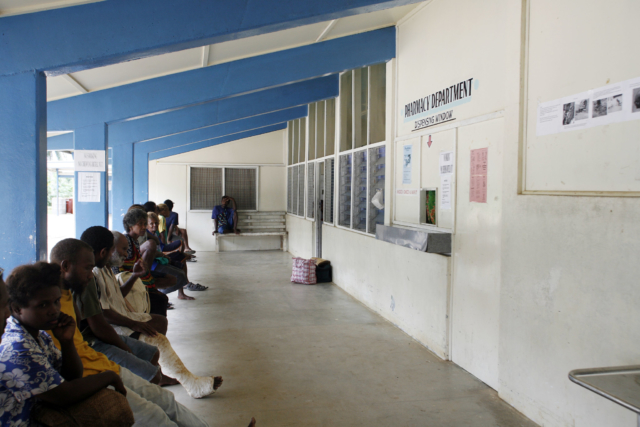Progress for Nurses in the Solomon Islands
 The Solomon Islands has just two doctors for every 10,000 people. The doctor shortage makes nurses particularly essential, especially as the country faces frequent natural disasters and disease outbreaks. However, nurses are also in short supply. Furthermore, in a country with a 12% poverty rate as of 2013, nurses do not receive proper pay and care. Nurses in the Solomon Islands have faced even more difficulties than usual during the COVID-19 pandemic, but new training programs are helping to remedy the shortage.
The Solomon Islands has just two doctors for every 10,000 people. The doctor shortage makes nurses particularly essential, especially as the country faces frequent natural disasters and disease outbreaks. However, nurses are also in short supply. Furthermore, in a country with a 12% poverty rate as of 2013, nurses do not receive proper pay and care. Nurses in the Solomon Islands have faced even more difficulties than usual during the COVID-19 pandemic, but new training programs are helping to remedy the shortage.
Nurse Strikes and Protests
Nurses are the primary healthcare providers in the Solomon Islands, but despite this, they consistently struggle with pay allowances rightfully due to them. The Solomon Islands Nurses Association has issued strikes multiple times over the past five years. In 2016, nurses went on strike for “multi-allowances and special duty allowances” that remained unpaid from 2013. The association extended the strike multiple times as nurses fought to receive the outstanding allowances. Eventually, the strike ended when the government agreed to review and listen to nurses’ demands.
In 2018, nurses found that many of the demands from a Memorandum of Agreement signed in 2007 remained unmet. It called for public service to pay for transportation, housing and posting and for the government to review five other claims. Eleven years later, those demands remained unmet and nurses issued a 28-day strike notice.
In 2019, the nurses again faced a similar situation. The government had agreed on a payment plan the previous year that would provide the nurses with their incentives at the beginning of 2019. A month into the year, the payment did not come through as agreed upon. Once again, the Solomon Islands Nurses Association issued a 28-day strike notice.
Most recently, in October 2020, nurses working in Honiara, the country’s capital and a COVID-19 emergency zone, threatened to strike if they did not receive allowance pay for working on the front lines. The nurses initiated sit-in protests, but when those were overlooked, they went on strike without government approval.
Strike Repercussions
As a result of the unauthorized strike, the government suspended the Solomon Island Nurses Association as a trade union. The government recognized its inability to pay the nurses but did not believe the strike was in Solomon Islanders’ best interests. However, since the suspension, the government has taken action to address the nurse shortage by improving training programs for nurses.
Supervised Practice Program
In March 2021, 180 registered nurses graduated from the Solomon Islands National University and Pacific Adventist University in Papua New Guinea and Atoifi. The graduates have begun a year-long internship with the newly implemented Supervised Practice Program. The Supervised Practice Program ensures nurses are fully registered before employment, focusing on areas of nursing that need improvement in the Solomon Islands.
The graduates are monitored and tested in attendance and timeliness, nursing ethics, code of conduct adherence and dedication. The Supervised Practice Program will help ensure that the Solomon Islands employs qualified and properly trained nurses. With this program, the government aims to improve healthcare and show support for nurses.
Long-Term Benefits of More Nurses
A lack of proper healthcare not only leads to poor health and a shorter lifespan but can also impact people’s ability to work and earn money, ultimately lowering household income and increasing poverty. People living in poverty are already at high risk of poor health because of limited access to healthcare services, a lack of nutritious food and unhealthy living environments. With increased access to qualified nurses, the people of the Solomon Islands will be able to improve their health and reduce poverty as productive citizens who can contribute to the economy.
The pandemic highlights the essential role of nurses, and as such, it is imperative to value, support and prioritize nurses. With progress for nurses in the Solomon Islands, quality healthcare will be more easily accessible to citizens, helping to reduce disease, death and poverty.
– Delaney Gilmore
Photo: Flickr
